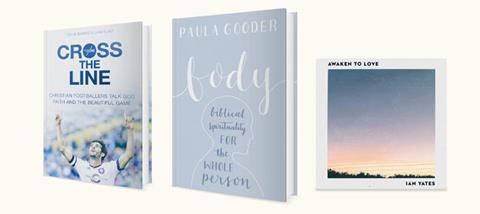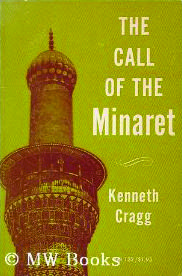
BODY
Paula Gooder
SPCK
Sometimes it’s helpful to be reminded that the Bible wasn’t written in English. In this clear and careful book, well-known theologian Paula Gooder unpacks a number of key concepts from Paul’s letters, including kardia (heart), nephesh (soul), pneuma (spirit), psuch (soul), psuchikos (natural), sarx (flesh), and soma (body). None of these words translate directly into English and almost all of them are sorely misunderstood by most Christians. Only when we grasp what he meant when he used these words, she argues, can we appreciate what Paul thought about union with Christ, life after death, worship, sex and the Church.
Gooder moves slowly and carefully through her material. Her arguments are convincing, lucid and easy to follow. They are also weighty. She doesn’t say much that theologians or New Testament scholars would quibble with, but there is a lot here for the rest of us. Who am I? Do I have a soul? Will we go to heaven when we die? How does my body
relate to my spirituality? What does that even mean? These are very real pastoral questions, especially for people mourning loved ones, suffering from eating disorders or tempted by asceticism. Gooder’s book is therefore important reading for anyone involved in ministry, anyone who finds themselves preaching on Paul, or for people who like to know what they are looking at when they pick up their Bibles.
The only downside is that most of the book is dedicated to word studies, so those looking for a light read with edifying and practical illustrations of the spiritual life may want to pass this one by. This is a solid, but not exciting book.
Gooder’s tone is nonetheless gentle and she always has an eye out for how her teaching will impact people’s everyday lives, making this a valuable contribution to Christian thinking about the body and about spiritual life in general. RC
IN A LAND OF PAPER GODS
Rebecca Mackenzie
Tinder Press
Henrietta S Robertson is 10 years old. Her parents are English, but her home is China. She lives in a boarding school for the children of missionaries, thousands of miles from her parents, and she feels the hand of God upon her.
Rebecca Mackenzie’s debut novel is a beautifully written tale of girls growing up far from home, with a war creeping ever closer. Henrietta is an unusual heroine. Her search for significance leads her to embroil her friends in a series of daring breaches of the rules, with terrible consequences.
Yet this isn’t the typical school story of girls getting into scrapes and learning moral lessons. It is a story of one little girl adrift in a world not of her choosing; a tale of loneliness, the search for identity, and the longing for a mother’s love.
Mackenzie’s elegant writing employs deceptively simple language. She writes with the rhythm of a poet.
This poignant and moving tale, though shot through with talk of God and the quest to discern his will, is not a typical “Christian novel”. But if you love a book that transports you to another time and place, and that really gets inside the head and heart of a character, this is a rich and rewarding read. JP
CROSS THE LINE
Ollie Baines and Liam Flint
SPCK
This book gathers interviews with 20 Christian footballers from around the world. We read stories of football and faith from experienced professionals, young prospects and genuine world superstars.
The big names really are big. Kaka was once probably the best player in the world and has played for massive clubs such as AC Milan and Real Madrid. Premier League stars Darren Bent and Benik Afobe also make an appearance. It’s an impressive cast list and puts to bed any idea that you can’t be a high-level footballer and a Christian.
The temptations of the footballer’s lifestyle is one of the themes that runs through the interviews. Other common threads include the importance of faith in keeping them grounded.
Young players make up a good chunk of the interviews and they’re mostly not a thrilling read. They often default to cliché and come out with phrases such as, “When you are willing to work hard and pray, anything is possible.” This might be a good motivational slogan, but does it have theological value?
The real value is found in the older players’ reflection. Premier League veterans Darren Moore and Linvoy Primus have more insightful and challenging things to say. You get the sense they’ve walked a lot further in their careers and in their faith.
The book would be a good present for a 14-year-old football fan whose faith maybe feels a bit unsteady, or who feels it’s not really cool to be a Christian. AW
SOMETHING MORE
John Pritchard
SPCK
What tools do we have to help people interested in “spirituality but not religion” explore the Christian faith? Something More is a pretty good place to start as John Pritchard gently coaxes the reader towards considering the Christian narrative and the person of Christ.
Each short chapter includes big questions and short scriptures to ponder, as well as thoughtful poetry and quotations to illustrate. Suggestions for taking it further include trying out silence, practising gratitude or reading a Gospel.
There is definitely a gap in the market for Something More, which bridges the chasm between outright Christian apologetics and books on spiritual self-discovery.
Some of Pritchard’s cultural references are most likely to resonate with a Radio 4 kind of readership rather than having broader appeal. But the language is accessible and the book is broken into easily digestible chapters, full of anecdote rather than argument. All this makes the book an ideal gift for someone open to exploring faith through reflecting on experience. AL
NOMAD
Brandan Robertson
DLT
In Nomad, 24-year-old American Brandan Robertson explores what it’s like to “move beyond the boundaries of rigid religion” to find God in places he previously could never have imagined.
Robertson takes the reader on a journey through his questioning of the fundamentalist Baptist Christianity of his teenage years, leading to profound experiences of God in contexts and church traditions that he had only ever had criticism for: a monastery; a church with a woman preaching; and traditions that are rooted in the Church calendar. Ultimately, he becomes comfortable with a questioning faith and encourages others to do the same.
Nomad is a book about discovering that the faith you’ve held to for many years is more diverse than you had previously thought. Robertson’s words will definitely resonate with people who share his experiences. Those outside the context of American conservative Christianity will perhaps find less to identify with, but the book is a useful reminder that God works outside of political issues, denominational boundaries and the status quo. HM
REFUGEE STORIES
Dave Smith
Instant Apostle
Asylum is a dream that offers hope and security. Getting it can be a nightmare, pitting the indomitable nature of the human spirit against seemingly intractable processes of officialdom.
In this book, four men and three women of varying nationalities, ages, levels of education and religions share their stories.
Each individual was initially refused asylum and has links with the Boaz Trust, having been accommodated by the charity or host families. All except one have now obtained that status or leave to remain. They have skills to offer the UK and are now giving back more than they received in benefits. As one states: “I didn’t want to be a charity case.”
There are no fairy tale endings and one story is still in progress. The stories demonstrate how there are more misconceptions than points of understanding when it comes to the issue of refugees.
Although narrating each story in the first person helps us to see first-hand what it’s like to experience persecution and exile, the style becomes frustratingly repetitive as we hear similar stories multiple times.
Nevertheless, the testimonies are heartwarming, gut-wrenching, and challenge preconceptions about refugees. There are no punches pulled as the Home Office, legal profession and media all come under fire for being inefficient, unhelpful and misleading. Refugee Stories is also practical and the suggested ways to get involved and make a difference are hugely helpful. Buy it, read it and pass it on to your church leader. DB
AWAKEN TO LOVE
Ian Yates
7Core Music
Ian Yates’ fourth album is full of renewed hope and passion after the singer-songwriter felt God was telling him, “It’s time to dream again...”
A powerful mix of electro rock, indie and pop, Awaken to Love is a slickly produced insight into Yates’ faith, and opening track ‘High wire’ in particular is instantly catchy.
The lyrics are often thought-provoking, based on the artist’s personal experiences.
The song structures and Yates’ vocals are similar to other well-known worship leaders such as Martin Smith and Matt Redman, and it’s perhaps no coincidence that the latter co-wrote the magnificently layered and reflective, piano-led ‘No longer I’.
Yates’ ambient and unique reimaging of The Beatles’ classic ‘All you need is love’ is wholly unexpected, as is his ability to write soaring choruses capable of lifting entire songs off the ground. The result is an album with heart and a powerful testimony to trust God’s unending love. KH
GAMECHANGERS: LIVE WORSHIP FROM SPRING HARVEST
Various Artists
Elevation
With some of the best worship leaders in the UK featured on this release, Spring Harvest has produced another brilliant album.
Every track is recognisable and established in many churches around the UK. Even the newer songs follow genre convention and are therefore easy to use in a corporate worship setting. The song arrangements are aimed at those in their 20s and 30s who are already familiar with worship from Spring Harvest, Soul Survivor and New Wine.
What is special about this album is the musicianship and production. The compositions are stunning examples of what quality contemporary worship can and should sound like.
The making of this album was seemingly inevitable following this year’s Spring Harvest conference. It is an album that details an experience; a reminder for attendees of what it was like. Thanks to this album, those who missed the Easter event can now get a taste of what it was like. LS
The book that changed my life
THE CALL OF THE MINARET
Kenneth Cragg
I was largely ignorant of Islam until after university. As a new Christian convert in the late 1980s, I gained the impression that a “good” Christian should view Islam as “bad”. I found this confusing as it stood in opposition to the lovely Muslim family I had met who lived across from my church, who were always so gentle and hospitable.
Later, at theological college, I read The Call of the Minaret by Kenneth Cragg. The former Bishop of Egypt was an academic and had spent many years living and working as a Christian among Muslims. The book was written in 1956, but was incredibly forward-thinking.
Dr Cragg suggested we could learn much from devout Muslims’ dedication to prayer, which was woven through the day like a shining thread. He advocated respectful and open conversation between the faiths, recognising difference but also acknowledging similar hopes and aspirations as well as ways forward.
As the years went by I became more and more involved in interfaith work. Dr Cragg’s book gave me the confidence to explore, to share and to listen.
by Shannon Grenham-Thompson
REVIEWERS: ROLAND CLARK is a lecturer in modern European history at the University of Liverpool • JENNIE POLLOCK is a freelance writer and editor • ANDY WALTON is a writer and broadcaster, and a Bolton Wanderers fan • ALEXANDRA LILLEY is a curate in the East End of London • HANNAH MUDGE writes on Christianity and feminism, and works for an international development organisation • DOUG BARNETT is a preacher and trainer in the UK and Middle East • CLARE IRWIN assists her husband in running Carmel City Church’s West Campus • RICHARD WOODALL is a freelance writer • KATE HILL is a youth and community worker • LUCY SNELL is an LST graduate of Worship, Music and Theology •



































